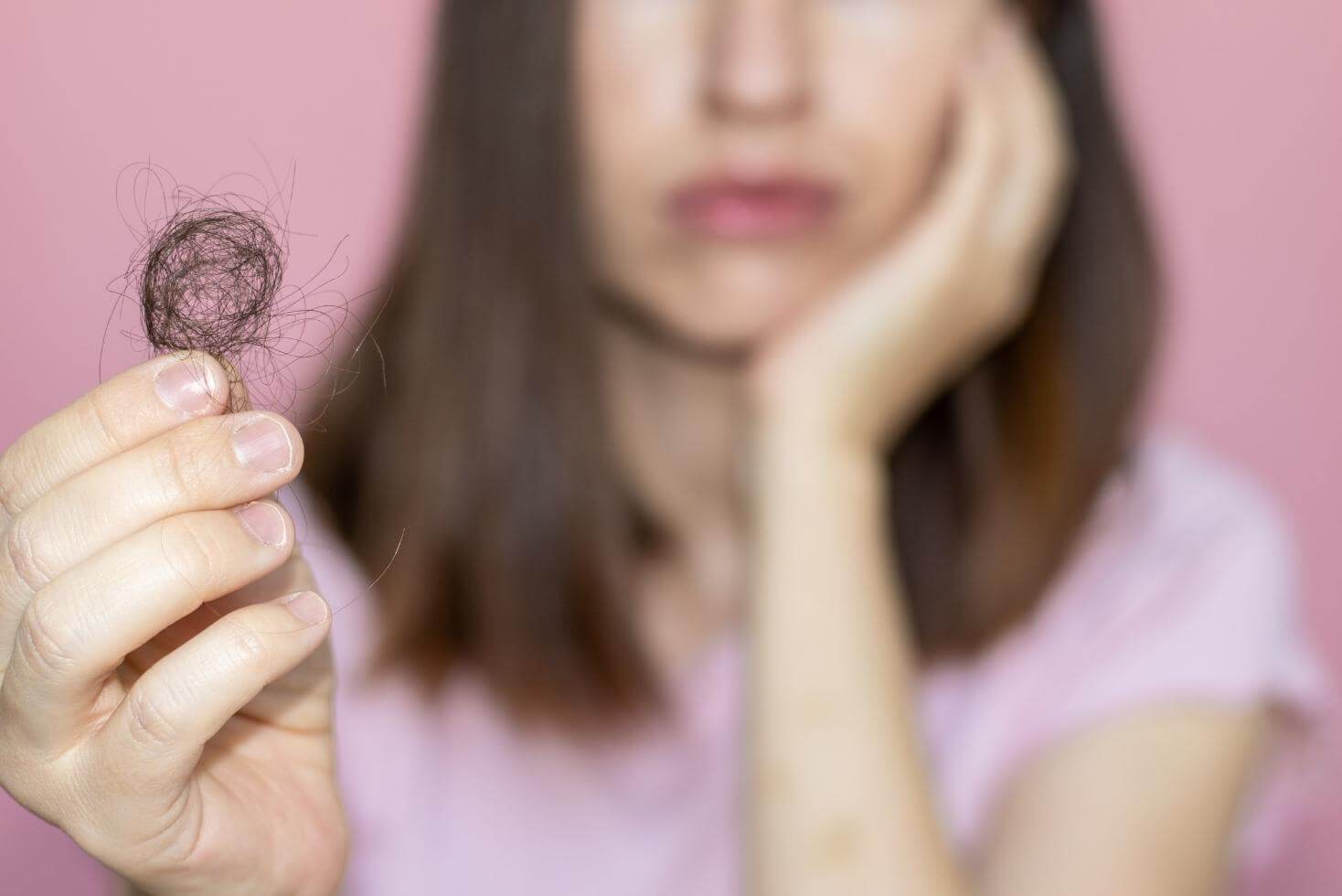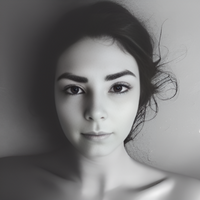Collagen for Postpartum Hair Loss – Here’s Why It Works
Updated on
This post may contain affiliate links. As an Amazon Associate, we may earn from qualifying purchases.

Only pregnant women can understand the struggles with fluctuating hormone levels during and after pregnancy. Not to mention how dealing with the physical changes can take a toll on your mental health.
Hair loss is one of the common symptoms experienced by postpartum women as their bodies attempt to return to their normal state after giving birth. In an effort to combat it, many women turn to unfamiliar pills and products.
But did you know that one of the best ways to minimize postpartum hair loss is by supplementing more collagen into your diet?
Let me explain …
Table of Contents
- Collagen Plays a Critical Role During Pregnancy
- After Pregnancy, the Body’s Collagen Levels Are Knackered
- Other Causes of Postpartum Hair Loss
- It’s Vital to Help the Body Restore After Giving Birth
- Collagen for Postpartum Hair Loss Is Highly Recommended by Hair Experts
- Which Collagen Is Best for Postpartum Hair Loss
- Other Ways to Help Recover from Postpartum Hair
- Collagen Supplements When Breastfeeding
- Supplementing Collagen Helps Postpartum Hair Recover
Collagen Plays a Critical Role During Pregnancy

Collagen is one of the human body’s most important and abundant proteins. It is responsible for giving elasticity and strength to the skin, hair, connective tissues, tendons, and ligaments.
During pregnancy, the body increases collagen production to prepare for the additional stress placed on the expanding uterus. According to a study from the Albert Einstein College of Medicine, Yeshiva University, New York, there is an approximate increase of 800% in the collagen content of the human uterus during pregnancy! [1]
Collagen helps to keep the uterus strong and prevents any stretching or tearing. Additionally, collagen helps to create a smooth surface for the baby to travel through the birth canal. Collagen is also a primary component of the placenta, the organ that supports fetus growth during pregnancy. [2]
So how does this affect the hair and skin?
During pregnancy, the body concentrates all of its efforts on supporting the expanding uterus and the baby’s development.
To put it simply, the body gives high priority to the uterus and the baby for its collagen distribution, therefore, lesser priority to the other parts that are not deemed critical, i.e, hair and skin.
After Pregnancy, the Body’s Collagen Levels Are Knackered
After giving birth, the body starts to feel the effects of the collagen deficiency in its other parts.
Approximately 53 grams of collagen is lost from the postpartum uterus, and by the 8th day postpartum, the human uterus has lost approximately 72% of its total collagen content. [1]
Although the body works towards rebalancing itself naturally, the process can take longer as it deals with the process of involution, that is, restoring the uterus to its pre-pregnancy state first.
That’s why during the postpartum period, it’s common to see excessive hair shedding, postpartum frizz, sagging skin, and wrinkles due to collagen deficiency, hormonal imbalances, and the body’s primary focus on restoring itself to its pre-pregnancy state.
Hair follicles are very sensitive to changes in the body, and they are the first ones affected by any type of deficiency. Therefore, the lack of collagen rapidly manifests into thinner, weaker hair and, to some extent, postpartum hair loss.
However, it is essential to note that collagen deficiency is not the only contributing factor to thinning hair and excessive shedding during this phase. Other factors like fluctuating estrogen levels can also force the hair into resting phase (Telogen), thus slowing down growth.
Other Causes of Postpartum Hair Loss

Low Estrogen Level
During pregnancy, a woman’s body produces estrogen and progesterone at higher levels. The surge in pregnancy hormones causes many hairs to stay longer in the growing phase (Anagen). That’s why the hair looks thicker and shinier with a healthy glow.
However, as the estrogen levels go back to normal, the hair goes from the active phase to the resting phase. As a result, the hair strands fall out during the postpartum period, which causes significant distress for postpartum women when they notice hair thinning.
Thyroid Disorder
Postpartum thyroiditis is a condition that causes inflammation of the thyroid gland, affecting the thyroid hormones that control many of the body’s processes, including hair growth. The condition usually happens between 1 and 6 months after childbirth and is more likely to affect women with type 1 diabetes. [3]
Breastfeeding
Breastfeeding is another common cause of postpartum hair loss. As new mothers nurse their babies, their bodies undergo high stress as they deplete the micronutrients and slow the body’s metabolic rate.
It’s Vital to Help the Body Restore After Giving Birth

After childbirth, your body still has a lot to do to restore itself to its pre-pregnancy state. Plus, the stress of looking after a newborn adds more strain on your physical and mental health.
So why wait for your body to catch up?
This is when postnatal supplements are vital in supporting new moms. And collagen is one that should not be overlooked, given how much your body has produced and consumed during pregnancy.
While collagen is naturally produced by the body, it cannot be solely relied upon to provide adequate supply during this time of recovery, when the demands are too high for the body to cope.
Supplements help to fill in the gaps and give your body the extra support it needs. Look for a supplement that contains type 1 and 3 collagen peptides, as these are the most bioavailable.
Bioavailable means the supplement is recognized by the body, making it easy to absorb and synthesize.
Collagen for Postpartum Hair Loss Is Highly Recommended by Hair Experts
According to Dermatologists and hair experts, collagen is a key ingredient to look for in postnatal supplements.
Dermatologist Robin Blum, M.D highly recommends nutritional supplements that contain marine collagen for women who experience shrinking hair follicles during the postpartum period. Her favorite product: Nutrafol.
Mara Roszak, a celebrity hairstylist also recommends a collagen-based supplements. She is a big fan of Viviscal collagen complex, which she used to battle her own postpartum hair loss.
Sunnie Brook, another famous celebrity hairstylist who boasts A-list clients like Hailey Baldwin, Chrissy Teigan, Chris Hemsworth, and Lana Del Rey, confesses that she got through her postpartum hair loss by adopting a well-balanced diet and supplements like biotin, collagen, iron, zinc, and vitamin D.
Her favorite: Perelel
The benefits of collagen for improving hair and skin have been well-documented, but there is still limited evidence to suggest that collagen can reverse hair loss.
So The Key Takeaway Is:
Collagen supplements help to replenish a vital component that the hair needs to grow and function. It is no magical cure for reviving lost hair. Use it as a prevention rather than a cure.
It will stabilize further hair loss and make your hair grow thicker with more density, improving the overall appearance of a thicker and healthier head of hair.
Which Collagen Is Best for Postpartum Hair Loss
Among the different collagen types, type I is the most effective for growing healthier hair. Not only does it improve elasticity and hydration, but it also aids in hair regrowth more effectively than other collagen types.
Here are the highly recommended collagen supplements for postpartum hair recovery.
Please Note: Like any other supplements – consider them with care and speak to your doctor first.We may earn a commission from the links below.

- Breastfeeding-Friendly
- Fortified with amino acids
- Trusted by leading Dermatologists
Other Ways to Help Recover from Postpartum Hair
Other than supplements, adopting a healthy diet rich in natural collagen and using hair products that boost growth will also help restore your hair.
Here are some tips to boost collagen in your hair:
Use a Postpartum Shampoo
Shapiro MD Postpartum Shampoo
The Shapiro MD shampoo, specially formulated for postpartum women with thinning hair, contains vegan collagen as well as DHT blockers to support the growth of thicker and fuller hair for new and expecting mothers.
Be Gentle with Your Hair
Keep in mind that, along with your body, your hair has been through a stressful nine months. Therefore, it requires extra care to get back to its pre-pregnancy state. Generally, it is recommended for women in the postpartum period to use fewer hair products and avoid heat exposure. Furthermore, you should avoid hairstyles that stress your hair follicles excessively.
Eat a Healthy Diet
A balanced diet that makes up for any nutritional deficiencies will also help promote hair health. Try to incorporate foods that contain vitamin E into your diet, as it can help with postpartum hair loss and stimulate new growth.
Postpartum Vitamins
Seek advice from your doctor on what postnatal vitamins to take. It’s essential to assist your body with the extra support it needs. Bioavailable vitamins and supplements make nutrients readily available to the body, reducing the need to produce and synthesize them. This means faster recovery.
Collagen Supplements When Breastfeeding
A collagen supplement may contain many other ingredients or additives, depending on the brand you use. While many brands that cater to pregnancy care claim their products are safe for breastfeeding, like any other dietary supplements, collagen supplements are not regulated by the Food and Drug Administration (FDA).
Therefore it is in your best interest to speak to your doctor about the supplement brand you wish to use.
Supplementing Collagen Helps Postpartum Hair Recover
Although collagen cannot prevent or reverse postpartum hair loss, it effectively promotes healthy hair by helping the body replenish its building blocks. Thinning hair follicles can also regain strength when provided with sufficient amino acids.
However, always consult with your doctor before trying a new supplement to ensure all ingredients are safe to consume after pregnancy, especially if you’re breastfeeding.
References & Citations
- Alteration in the collagen content of the human uterus during pregnancy and postpartum involution.
MORRIONE, T G, and S SEIFTER. “Alteration in the collagen content of the human uterus during pregnancy and post partum involution.” The Journal of experimental medicine vol. 115,2 (1962): 357-65. doi:10.1084/jem.115.2.357
https://www.ncbi.nlm.nih.gov/pmc/articles/PMC2137490/ - Collagen in the human placenta
Hirayama, H et al. Nihon Sanka Fujinka Gakkai zasshi vol. 34,11 (1982): 1839-45.
https://pubmed.ncbi.nlm.nih.gov/7175283/ - Postpartum Thyroiditis
https://thyroiduk.org/having-a-baby/postpartum-thyroiditis/
About the Author
 Tina Moretti
Tina MorettiTina Moretti, a passionate hair care enthusiast with over a decade of expertise, dedicates herself to empowering women with proven hair care advice. Recognized for her hands-on experience and trusted guidance, Tina turns every strand into a statement of beauty and confidence.




